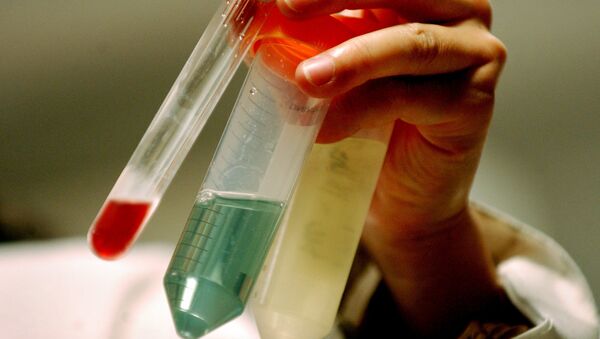The research, conducted by Assistant Professor Luis Escobar of Virginia Tech’s College of Natural Resources and Environment and two officials at the US National Institutes of Health, sought to uncover why developing countries, including some Latin American ones, are seeing lower COVID-19 mortality rates than several US states.
“This is remarkable, considering that [these parts of] Latin America have much higher population densities than the North American states analysed, including New York,” co-author Carolina Barillas-Mury wrote in the peer-reviewed paper.
The study found that countries with lower COVID-19 mortality rates were diverse in terms of age distribution, income and health care access. However, they all had in common a tuberculosis vaccination program.
The drug, called the Bacille Calmette-Guérin (BCG) vaccine, is not commonly used in the United States, the US Centers for Disease Control and Prevention explains. Tuberculosis is a bacterial disease caused by Mycobacterium tuberculosis that can greatly damage the lungs as well as other parts of the body. The disease is prevalent in developing countries, according to the World Health Organization (WHO).
Based on data analyses, the researchers found that there is a strong correlation between “universal BCG vaccination deployment in a country” and “COVID-19 mortality in different socially similar European countries.” In fact, the researchers found that every “10% increase in the BCG index was associated with a 10.4% reduction in COVID-19 mortality.”
The researchers also questioned the WHO’s position that there is no evidence that the tuberculosis vaccine can protect against COVID-19.
“Such ecological studies are prone to significant bias from many confounders, including differences in national demographics and disease burden, testing rates for COVID-10 virus infections, and the stage of the pandemic in each country,” the WHO said in April, in a news release detailing its position that there is no evidence that the BCG vaccine protects people against COVID-19, in response to three preprints on the topic that had not yet been peer reviewed.
Escobar said that the researchers factored differences between countries into their analyses.
“All countries are different: Guatemala has a younger population than, say, Italy, so we had to make adjustments to the data to accommodate those differences,” he said, the South China Morning Post reported.



